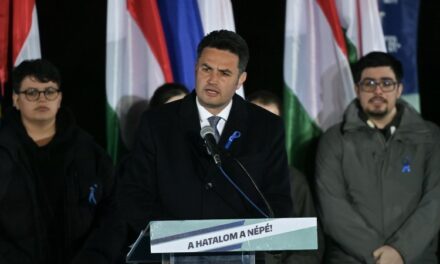Before the summer break of the institutions of the European Union, the politicians of the European Parliament's (EP) Civil Rights, Home Affairs and Justice Committee (LIBE) and the Constitutional Affairs Committee (AFCO) expressed their concern about the Hungarian presidency in 2024 during their joint meeting. In connection with the Hungarian presidency, the Meijers committee dealing with the exercise of the consecutive presidency of the European Council was also invited to take stock of the possibilities of the EP, whose legal experts highlighted that the parliament does not have significant room for maneuver in the matter. The Meijers Committee, founded by Dutch lawyers and civilians, regularly defends EU rights and democratic values and also defends migration.
In the rotating system of the presidency of the European Council, the council itself is the legislator, which determines the functioning of the presidency, said John Morijn, a member of the Meijers committee, before the members of LIBE and AFCO in the European Parliament. Although, according to the assistant professor of European human rights, it may be contradictory that the procedure under Article 7 is ongoing against our country and Poland, the European Court of Justice has passed judgments condemning both member states, and the European Commission has also formulated the most negative comments regarding these two countries. however, the European Parliament only has the possibility to propose amendments to the consecutive presidency .
The experts pointed out that the EP could define rules on the basis of which "disqualify certain member states from the consecutive presidency", however "it would not be legally binding, but would start a debate".
In the light of the expert reports, the present left-wing politicians came to the conclusion that they should continue exerting political pressure on Hungary and Poland. For example, the Dutch Sophie in 't Veld (Renew), who regularly criticizes our country, believed that the EP could reduce cooperation with the Hungarian presidency to a minimum.
"No one has ever written that we should be in contact with the presidency of the council," he said, and then he said that the EP would "make its own life better by doing so, and if the council wants the Hungarian presidency, then this is their problem."
It should be noted that there is a good chance that the Dutch politician will no longer be present in the European Parliament during the Hungarian presidency in 2024, as his new party, Volt, rejected his nomination as an EP representative.
Among Hungary's loudest critics was the German green politician, Daniel Freund, who, repeating his recent speech in Strasbourg, boasted that as a result of their work, 28 billion euros of the EU funds belonging to Hungary were frozen. According to the politician, this is such a large-scale result that even the amendment of the consecutive presidency would not be an obstacle.
At the same time, he lamented that the freezing of funds "has no side effects for the man on the street".
The green politician also emphasized that it is not worth stipulating that they cannot be subject to the rule of law procedure as a condition for the consecutive presidency for all member states, as this would provoke resistance from them. According to Freund, two conditions must be defined. This was based on the Delbos-Corfield report adopted by the EP, in which Hungary was defined as an "electoral autocracy". According to Freund, in the case of our country, it is not a fully democratic country, which must therefore continue to be put under pressure.
During the so-called "exchange of ideas", the independent lawyer of the independent Meijers Commission, John Morijn, also noted that the EP must respond to illiberal systems. Then, regarding the Polish presidency, he expressed his hope that a change of government will occur in Poland.
"Let's hope that there will be changes in Poland after the elections," he said.
During the LIBE-AFCO meeting, the involvement of our country and Poland in the rule of law procedure was repeatedly raised by the left-wing representatives. According to legal experts, it would be a feasible way for the EP not to discuss, for example, rule of law cases during the Hungarian presidency.
In this case, however, the discussion of rule of law issues with the Council should also be excluded in the case of Poland, which follows our country in the presidency, which would mean that no meaningful decisions would be made on such matters for a year.
Nevertheless, as the invited legal experts also said, the European Parliament has no influence on the definition of Council topics. However, it is worth noting that one of the main goals of the Hungarian presidency is to initiate reforms within the EU institutions that ensure that the conditions of the rule of law prevail in the EU institutions as well.
Source: hirado.hu / Public Media Center Brussels / Ritó Szabolcs
Cover image: Sophie in't Veld / Source: Sophie in't Veld's Facebook page













